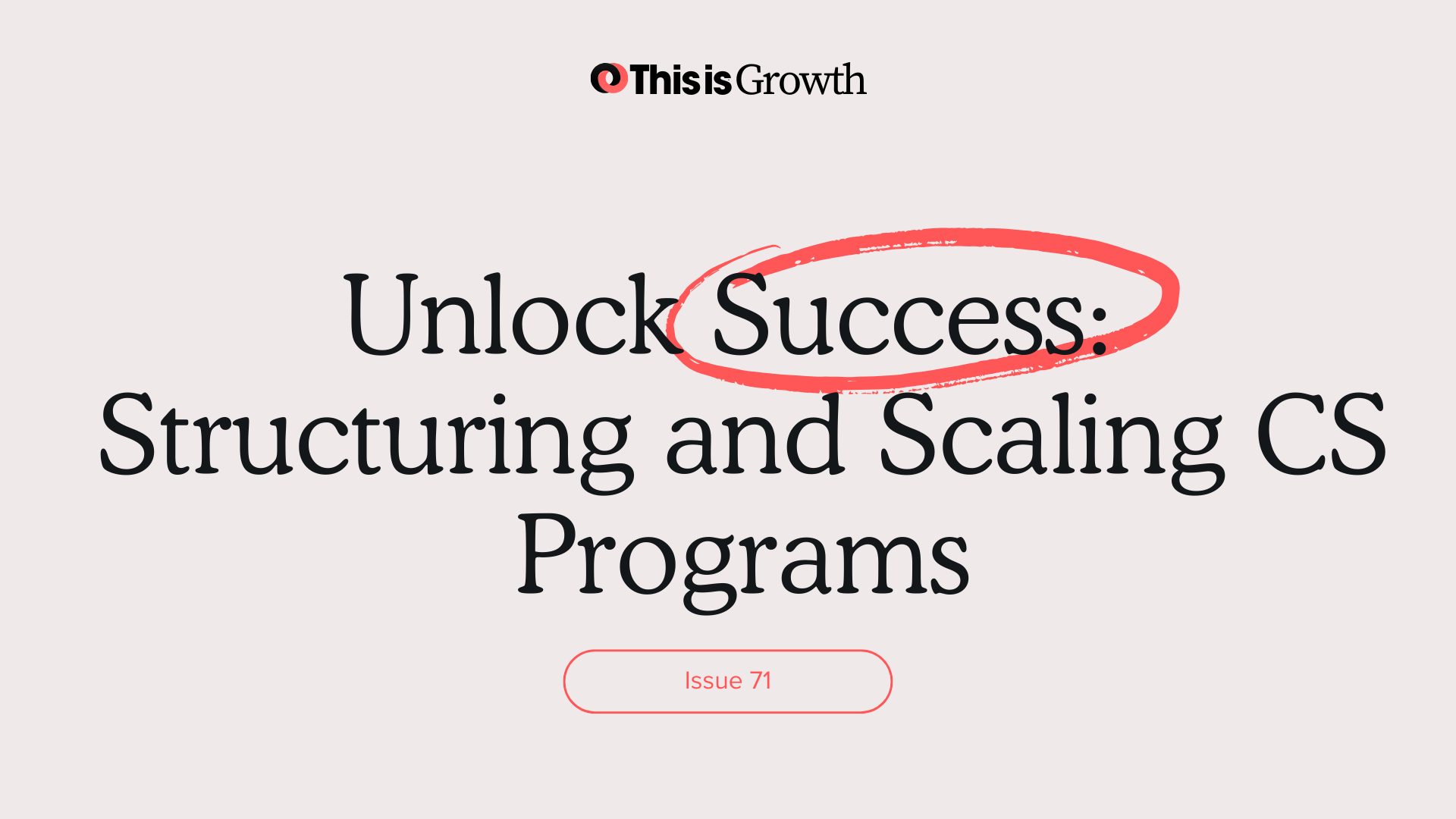#61: CSMing in the age of AI
The job of the CSM is about to change drastically, and most CSMs are not ready for it.
I wrote about it in this LinkedIn post and it got a ton of traction, so I thought I'd expand on it here on the newsletter for all of you!
Here's what I think the evolution will look like:

When we break down what a CSM needs to do on a daily/weekly basis with their customers, most of a CSM's time is spent:
❌ Identifying Risks
❌ Prioritising Customers
❌ Creating Presentations
❌ Identifying Opportunities
❌ Consolidating Information
❌ Summarising Conversations and Next Steps
The team at UpdateAI did a time study on this on their GenAI for CSM ebook and I talked about it with Mick, their founder in this episode of the podcast.
Today, we spend a bunch of time on those tasks because we don't have great ways to distil all our customer data.
We have individual indicators showing product usage, adoption, health, measurable outcomes, engagements, potential whitespace etc. But a CSM has to digest every one of these to be well-informed before a customer conversation.
That's before we even start putting any research on the company, the personas etc.
And when you have that, you're still not done.
You also need to understand what other conversations this customer might have been having with support, sales, product etc.
Most of the time, the CSM either doesn't have the time to do a good prep, or they spend a lot of time in the information-gathering phase and meet fewer customers than they would like to.
All of this is manual work today.
Even if it all lives in one system (which I know it doesn't!), it's still up to the CSM to review all the data points and extrapolate the "state of the customer".
But with GenAI this data crunch dies.
How?
AI will become embedded in our systems.
It will consume all of the data points I talked about, plus:
- it will scan for market information
- it will listen to customer calls
- it will cross-reference with thousands of other customers
AI will have a much better picture of the state of the customer, and it will do it in seconds, not hours.
And this is not a far-fetched vision. It's happening as we speak.
Gong is already bringing incredible insights from conversations. HubSpot has brought external data into a CSMs hand through ChatSpot. Matik is automating presentations.
And if you are skeptical because your company data isn't clean, here's my hot take:
- Every company will have to sort their data out for AI. Otherwise, they will be wiped out by younger, AI-native companies that will be way more efficient.
- Every CFO and CEO out there is exploring cost efficiencies. AI is one of the most compelling tools to achieve that.
- Even if the data is messy there's still plenty use cases where AI can use unstructured data to be more efficient (check a few of them out here).
And in the world of AI, CSMs will spend the majority of their time on:
✅ Resolving high-complexity challenges
✅ Highly tailored consulting conversations
✅ Multi-threading with key customer personas
So if your strengths are:
- Reviewing customer information in a quick manner
- Prioritising customers to talk to based on a criteria
- Identifying risk based on customer data and sentiment
- Creating presentations that visualise data on customer's usage
- Managing the customer lifecycle to get ahead of renewals
Your competitive advantage will diminish.
So what can you do today to prepare for the world of AI?
First, embrace it.
There's no point in fighting it.
If you are a CS Leader, here are 3 practical ways your team can start using AI.
If you are a CSM, focus your energy on mastering the skills that will help you deliver more value to customers. If you haven't grabbed a copy of my CSM Mastery: Skills and Drills Guide this is your cue to go grab it.
It will help you elevate how you:
- show up to every single one of your customer conversations
- orchestrate resources to help customers achieve results
- galvanize internal and external resources to drive value for the customer
- serve as a specialised consultant to give customers unique perspectives on how to solve their challenges
See you next Friday!
-3.png?width=200&height=88&name=This%20is%20growth%20(1)-3.png)
.png)
.png)
